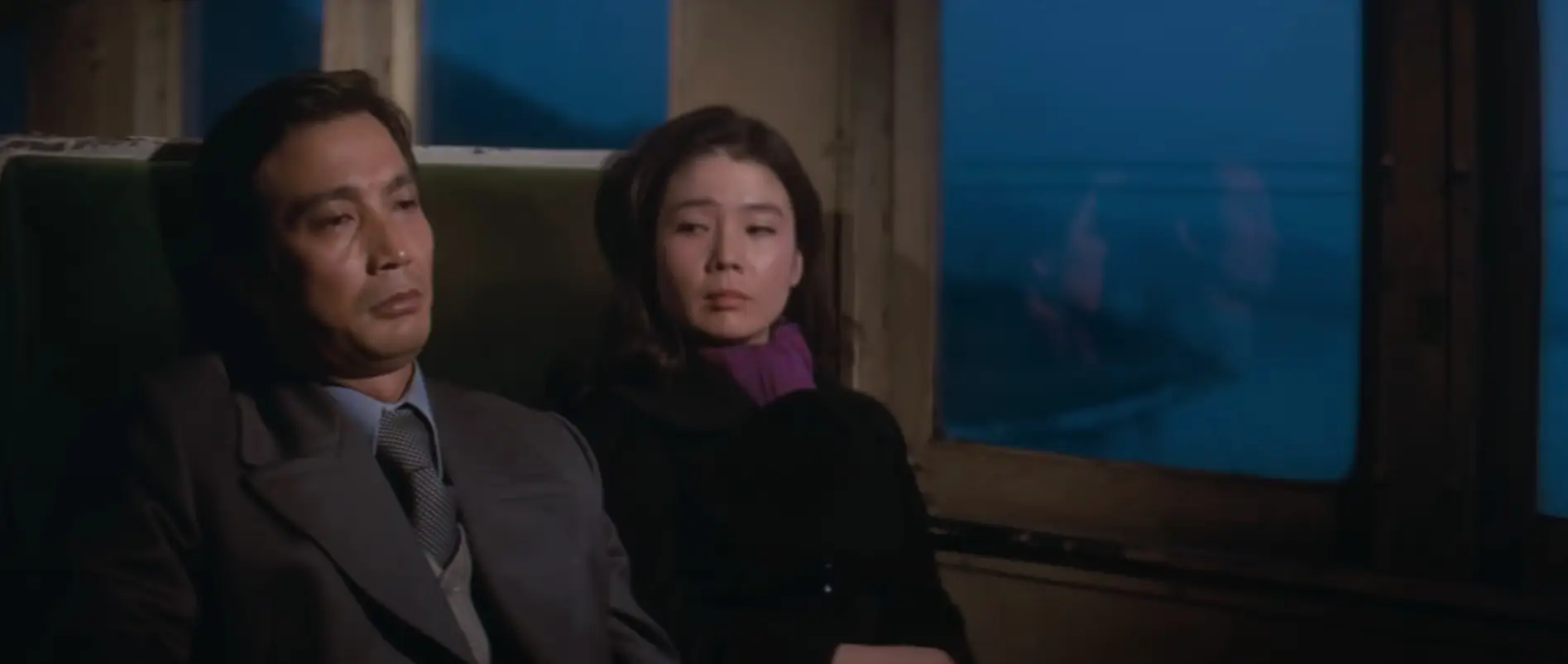Night Journey (야행) 1977
‘Night’s Journey’ is a film directed by Kim Soo-yong, featuring Yoon Jeong-hee, known for her role in ‘Poetry,’ and Shin Seong-il, who starred in ‘A Day Off.’ The trio had previously collaborated on ‘Mist,’ which was released in 1967. Although ‘Night’s Journey’ was initially filmed in 1973, it was not released until 1977 due to government censorship. The screenplay was written by Kim Seung-ok, a distinguished novelist of the era, who himself suffered under the strict military control of the country.
In the film, Yoon Jeong-hee plays Ms Lee, a woman labelled an “old maid” by her colleagues due to her unmarried status. Unbeknownst to them, she has secretly been involved with fellow bank employee Mr Park (Shin Seong-il) for about two years. The two maintain their relationship in complete secrecy and show no signs of affection in public. When two colleagues, who had briefly dated in secret themselves, get married, Ms. Lee uses her vacation time to return to her hometown. During this visit, she reflects on her first love, and her current situation with Mr. Park, and considers whether she is willing to continue living in her current predicament.
The film focuses entirely on Ms. Lee’s experiences; she is almost constantly in frame, and when she is not, the camera shows her viewpoint. We see her life at work, where she is teased by colleagues, including Mr. Park himself, about marriage. We also see her at home while Mr Park enjoys nights out drinking with colleagues. After work, she heads straight home, only stopping to buy groceries. She spends her evenings cooking and cleaning, patiently waiting for the drunken Mr. Park to return. Mr. Park is satisfied with this convenient arrangement and sees no need to marry, while Ms. Lee longs for something official and more romantically satisfying.
Kim Soo-yong takes a relatively straightforward approach initially. However, the second half of the film features hallucinatory scenes, accompanied by a piercing soundtrack reminiscent of horror films, similar to those found in ‘Women of Fire’ and ‘Insect Woman,’ both directed by Kim Ki-young, which address similar themes. Ms. Lee’s isolation within the frame symbolizes her lonely life. The happiest moments in the film occur when she is with her little sister during her visit home. Ms. Lee yearns for both affection and freedom, while Mr. Park embodies the freedom afforded to men.
Despite Mr. Park’s refusal to marry, it is Ms. Lee’s status that is derided. The expectations placed on women lead to belittlement, and the male gaze in the film portrays women as objects of sexual pleasure. One character even criticizes his wife for not being a virgin, highlighting the societal pressure on women to remain ‘pure’ while men seek to take advantage of them.
The film addresses the important issue of how women felt suppressed in the cultural context of 1970s Korea. However, its short runtime of 78 minutes, possibly a result of censorship cuts, limits the depth of the film. The feverish scenes can also be difficult to decipher, and the narrative becomes harder to follow. While it is a capable film led by a strong performance from Yoon Jeong-hee, it may not stand out among other films exploring similar themes during that period, such as the two by Kim Ki-young mentioned earlier. I found ‘The Seaside Village,’ also by Kim Soo-yong, to present a strong female character in a much more comprehensive manner.
